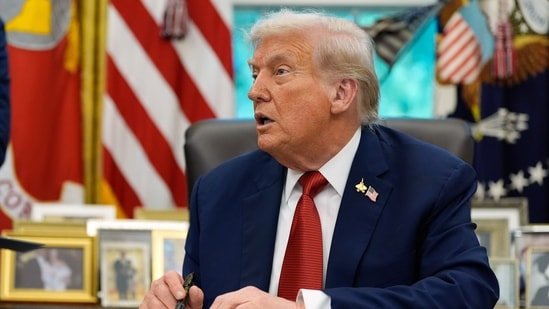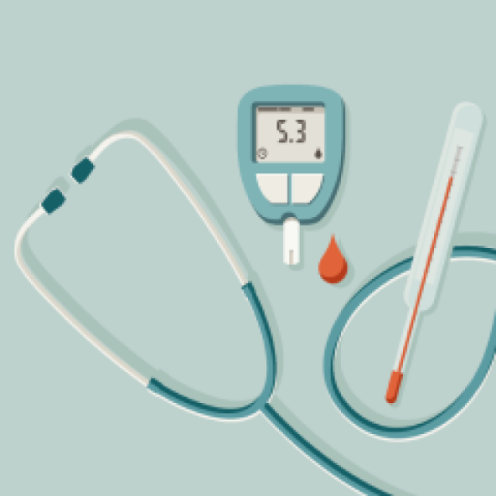The government has unveiled more details around plans for a new digital ID card to be held on people’s phones.
The digital ID, dubbed the ‘Brit Card’ by some, will provide proof of identity and residency status in the UK and is part of a wider push to combat illegal immigration.
It will be stored on devices in the same way contactless payment cards or the NHS App are, though some reports suggest that those who do not want to carry a digital ID card or do not operate digitally could be given a physical card instead.
Keir Starmer has said it is part of a wider push to tackle illegal immigration and will be mandatory as a means of proving the right to work, but people will not generally be required to carry it or be asked to produce it.
But the plans have been met with widespread concerns, with more than half a million people already signing a petition against the idea.
Who will be given a digital ID card?
The digital ID will be given to all UK citizens and legal residents, the government has said. It will be up to each individual whether they use it, but it will be compulsory for anyone who wants to work in the UK.
When will it be introduced?
The digital ID will become mandatory for right to work checks by the end of this parliament.
Starmer said: “I know working people are worried about the level of illegal migration into this country. A secure border and controlled migration are reasonable demands, and this government is listening and delivering.
“Digital ID is an enormous opportunity for the UK. It will make it tougher to work illegally in this country, making our borders more secure.”
What personal data will be on the card?
The digital ID includes proof of identity and residency status in the UK.
It will include your name, date of birth, and a photo as well as information on nationality and residency status.
Will I have to pay for a digital ID card?
The cards will be free of charge, culture secretary Lisa Nandy said on 26 September.
It will be funded under existing spending plans, but the government has said it is not putting a “precise figure” on the cost of rolling out the scheme because a consultation would seek to determine how it would work for groups including older people, the homeless and people with disabilities.
What will it be used for?
The digital ID will be used to verify citizenship and people’s right to work when they begin a new job. There have also been suggestions that they will be required when entering a new rental contract.
Currently, employers require some form of ID when signing new staff, along with a national insurance (NI) number, but there are concerns not all businesses carry out the checks thoroughly.
Nandy said it will be compulsory for people who want to work in the UK, proving that they have the right to work.
Keir Starmer is expected to announce the launch of new digital ID cards. (Getty Images)
“The problem with national insurance numbers is that they’re not linked to anything else,” Nandy said. “So they’re not linked, for example, to photo ID. So you can’t verify that the person in front of you is actually the person whose national insurance number that you’re looking at, and we’ve seen a real rise in the amount of identity theft and people losing documents and then finding that their identity has been stolen.”
The introduction of digital IDs won’t change what penalties companies face for failing to check their employees’ right to work, but she said it would make it easier for businesses to do their checks.
“It makes it much easier for companies to be able to do this and to be able to check whether people are able to work legally or not, which means there is no excuse for not doing so.”
The government also says a digital ID card will bring other benefits to ordinary citizens, “like being able to prove your identity to access key services swiftly – rather than hunting around for an old utility bill”.
When will I be asked to show my digital ID card?
While all UK citizens will have a digital ID, you won’t have to carry it as a matter or course or show it for anything other than proving the right to work.
“The plan is to ensure that everybody has it, but you can choose whether you use it,” Culture Secretary Lisa Nandy told Sky News.
Secretary of State for Culture, Media and Sport Lisa Nandy. (Getty)
She said: “It’s important, of course, that we protect people’s civil liberties, and we have got no intention of pursuing a dystopian mess. And like I said, although all UK citizens will have a digital ID, it will not be mandatory for people to use it. It will be entirely their choice.”
What if I don’t have a smartphone?
The government’s plans envisage that digital IDs will be stored on devices like phones in the same way contactless payment cards or the NHS App are.
However, it’s been suggested that people who don’t want to carry a digital ID card or who don’t operate digitally could be given a physical card instead.
A consultation is being carried out into how the scheme will work for groups including older people, the homeless and people with disabilities.
What have critics said about digital ID cards?
Supporters of a digital ID say it would build on the success of the NHS app and give people easier access to other public services, as well as potentially reducing fraud and helping tackle illegal immigration.
But critics have voiced concerns about how the government would use personal data..
Big Brother Watch’s interim director Rebecca Vincent is among campaigners to warn that rolling out a compulsory identification system could be “uniquely harmful to privacy, equality and civil liberties”.
They warn mandatory digital IDs would require the population to “surrender vast amounts of personal data” which could be “amalgamated, searched and analysed to monitor, track and profile individuals”. They argue to could leave people vulnerable to “catastrophic” data security breaches.
In December, a poll for More in Common found that more than half (53%) of people backed digital IDs, while only 19% opposed the idea.
Will it reduce illegal migration?
Employers already require some form of ID when signing new staff, along with a national insurance (NI) number, but there are concerns not all businesses carry out the checks thoroughly.
Starmer said: “I know working people are worried about the level of illegal migration into this country. A secure border and controlled migration are reasonable demands, and this government is listening and delivering.
However, the Institute for Government cautioned that “employers are already supposed to check right-to-work status of anyone they employ and it is not clear how far this would act as an additional barrier to illegal work.”







